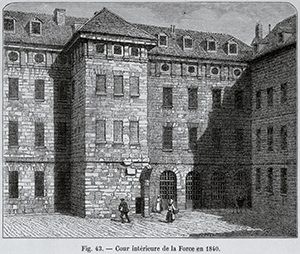February 28
Published in On this Day listing- 1985 Nine police officers were killed and 37, including 25 civilians, injured in an IRA mortar attack on Newry RUC station, the biggest single loss of police personnel during the Troubles.
- 2001 The Northern Ireland minister for agriculture, Brid Rodgers, ordered the slaughter of sheep at a farm in Meigh, South Armagh, because of a suspected—later confirmed—case of foot-and-mouth disease. It was the first outbreak in Ireland since 1941. A further case was confirmed three weeks later in sheep at Jenkinstown, Co. Louth, just across the border.
- 1985 Nine members of the RUC, including two female officers, were killed in an IRA mortar-bomb attack on the RUC station in Newry, Co. Down.
- 1974 In the Westminster general election, the Labour Party, under Harold Wilson, was returned to lead a minority government. In Northern Ireland, where the election was in effect a referendum on the Sunningdale Agreement, anti-agreement unionists won eleven of the twelve seats.
- 1973 In the general election Fianna Fáil were voted out of power after sixteen years in government. A Fine Gael/Labour coalition under Liam Cosgrave subsequently took office.
-

Above: La Force prison, Paris, from where Clotworthy Skeffington was liberated by the mob on 13 July 1789.
1805 Clotworthy Skeffington (63), 2nd earl of Masserene, died. In 1769, when living the life of an aristocratic dandy in Paris, he was swindled by his partner in a dubious scheme to import salt from the Barbary coast. Faced with debts of £30,000, which his family offered to defray, he refused to accept responsibility, declared instead that he was a victim of fraud and opted to go to prison. Under French law, his debts would be absolved after 25 years of confinement. Not that life in the debtors’ prison of Fort l’Éveque—formerly the home of the bishop of Paris—was by any means harsh. Allowing himself an annual budget of £4,000, he was accorded five-star quarters, employed his own private chef and regularly played host to his friends and mistresses. And if he was dispatched to the more austere La Force prison nine years later, it was a blessing in disguise. On the day before the storming of the Bastille the mob stormed La Force, freeing its inmates, and he fled to London accompanied by the governor’s daughter, whom he promptly married. The marriage, however, did not last. His wife’s extravagance, it seems, exceeded even his own liberal standards, so he bestowed a generous pension on her and took up with a servant girl, with whom he returned to Antrim Castle. In his later years he became widely known for his eccentricities, such as hosting dinners on the roof of his castle, an operation that involved having the furniture hoisted up on winches. When a favourite dog died, he had 50 of the local dogs, wearing white scarves, serve as a guard of honour at the funeral.
- 1973 The general election led to a Fine Gael/Labour coalition government with Liam Cosgrave as taoiseach and Brendan Corish as tánaiste.
- 1600 Lord Deputy Mountjoy landed in Ireland with a 12,000-strong army on a mission to subdue, once and for all, Hugh O’Neill, the earl of Tyrone. Charles Blount had little military experience but had studied military strategy over many years and was to conclude the Nine Years War (1594–1603) in favour of the Crown. First, he had Sir Henry Docwra drive a wedge between the territories of Tyrone and his main ally, Red Hugh O’Donnell. Then, after breaching Tyrone’s formidable defences along the Ulster border, he was almost undone by the arrival of 3,000 highly trained Spanish troops in support of Tyrone. But the ‘luck of the English’ prevailed, with Tyrone suffering defeat in the Battle of Kinsale (1601) similar to that of Bagnell at the Yellow Ford (1598). Finally, he endorsed, albeit reluctantly, Chichester’s scorched-earth policy to create famine, along with the indiscriminate slaughter of the native Irish, policies which over the following months led to the demise of Gaelic Ireland and ultimately the Flight of the Earls (1607). Unlike Cromwell, that other bête noir of Irish folk memory who landed on these shores a few decades later, Mountjoy is commemorated in two place-names. The village of Mountjoy on the western shore of Lough Neagh is named after the nearby Mountjoy Castle, built on his orders (1602), the ruins of which still stand nearby. The village of Charlemont on the east bank of the Blackwater River—the ‘Great River’, as they called it then—on the Armagh/Tyrone border some 8km from Dungannon gets its name from the fort he had built there (1602), the name being a combination of ‘Charles’ and the ‘mount’ element of Mountjoy.
- 1974 In the UK general election Prime Minister Edward Heath’s Conservative Party lost 28 seats. Harold Wilson (Labour) was subsequently returned to office for the second time in a minority government. In Northern Ireland the United Ulster Unionist Council (UUUP), a coalition of anti-power-sharing loyalists, won eleven out of the twelve seats. Gerry Fitt was returned for West Belfast for the SDLP.
















